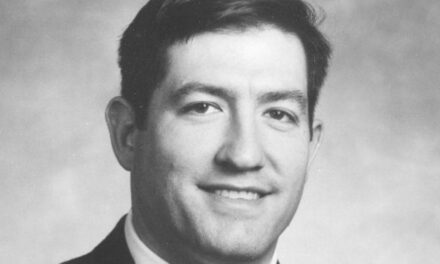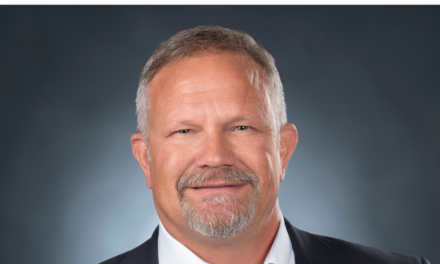Jeffrey Lamoureaux, based in California, has over 24 years of experience navigating the complexities of law enforcement, civil rights compliance, and Title IX investigations. From his early career with the Burbank Police Department, where he handled high-stakes incidents and developed a trauma-informed approach, to his current role as the owner of CIXE Investigations, Jeff has dedicated his life to serving others. A committed advocate for fairness, transparency, and equity, Jeff brings a unique perspective shaped by his faith, family, and firsthand experience with trauma. His journey reflects a balance between rigorous investigation and compassion, emphasizing the importance of trust and accountability in every case.
What inspired you to transition from law enforcement to Title IX investigations?
My transition was driven by both necessity and a desire to continue serving others in a meaningful way. After years in law enforcement, where I faced high-stakes situations like rescuing children from a hostage situation or responding to the aftermath of officer-involved shootings, I realized how deeply trauma affects individuals. These experiences taught me the importance of fairness and empathy in every interaction.
It was my wife, Melissa, who really encouraged me to pursue a new path. She recognized that my investigative skills and passion for justice could be applied in a different field—one where I could help create safer environments without the constant stress and risk that came with law enforcement. Title IX felt like the perfect fit because it allowed me to address critical issues like equity and safety while focusing on prevention and resolution. It’s been one of the most rewarding decisions I’ve made.
How has your background in law enforcement shaped your approach to Title IX work?
My time in law enforcement instilled in me the importance of thorough, impartial investigations. In that role, I was often tasked with resolving complex, emotionally charged situations where decisions carried significant consequences. That experience taught me to stay focused, ask the right questions, and always consider the human side of every case.
One lesson I’ve carried with me is the importance of trauma-informed care. In law enforcement, I witnessed how trauma could affect memory, behavior, and communication, and I’ve brought that understanding into my Title IX work. For example, when interviewing individuals involved in a case, I’m mindful of their emotional state and how trauma might influence their responses. This approach not only helps build trust but also ensures that the investigation is as fair and accurate as possible.
What do you see as the biggest challenge in Title IX investigations today?
One of the biggest challenges is balancing confidentiality with transparency. Title IX cases often involve sensitive, deeply personal issues, and it’s our responsibility to protect the privacy of all parties involved. At the same time, we need to ensure that everyone understands the process and feels that their concerns are being handled fairly. Striking this balance is no small task, but it’s essential for building trust in the system.
Another challenge is managing the emotional toll these cases can take on both the participants and the investigators. These are not easy conversations to have, and it’s important to approach them with empathy while maintaining professional boundaries. For investigators, self-care and peer support are critical to navigating these challenges effectively.
What role does technology play in your investigations, and how has it evolved?
Technology has become an indispensable tool in Title IX investigations. From case management software that streamlines documentation and communication to digital evidence collection, technology allows us to conduct investigations more efficiently and transparently. For instance, tools that securely organize and analyze evidence ensure that nothing is overlooked, while video conferencing platforms make it easier to conduct interviews with individuals who might be geographically distant.
However, with these advancements come new challenges, like ensuring data security and addressing the potential for digital evidence to be manipulated. As investigators, we need to stay informed about the latest technologies while also being mindful of their limitations. Ultimately, technology should enhance our ability to serve and protect, not replace the human connection that’s so critical in this work.
How do you build trust with the people involved in your investigations?
Trust starts with communication. From the very first interaction, I make it a priority to explain the process clearly and answer any questions they might have. People need to know what to expect, and they deserve to feel that their voices are being heard. I also emphasize the importance of fairness and transparency, making it clear that my role is to remain impartial and ensure that the process is conducted with integrity.
Another key component is empathy. While I maintain professional boundaries, I also acknowledge the emotional weight these cases carry. Simple actions like allowing someone to take a break during an interview or validating their feelings can go a long way in building trust. Ultimately, people want to know that they’re being treated with respect and that their concerns are being taken seriously.
What advice would you give to someone entering the field of Title IX investigations?
First, take the time to truly understand the principles of fairness and trauma-informed care. These concepts are at the heart of effective Title IX work, and they require ongoing learning and self-reflection. Second, prioritize clear communication. Whether you’re explaining the process to a participant or presenting findings to an institution, clarity is essential for building trust and ensuring a successful outcome.
Finally, don’t underestimate the importance of self-care. This work can be emotionally demanding, and it’s easy to burn out if you don’t take steps to recharge. Lean on your support network, seek out professional development opportunities, and don’t be afraid to ask for help when you need it.
What keeps you motivated in this line of work?
For me, it’s all about the impact. Knowing that I’m helping to create safer, more equitable environments keeps me going, even when the work is challenging. Every case is an opportunity to make a difference in someone’s life, whether by providing closure, ensuring accountability, or simply making sure they feel heard and respected.
My faith and family also play a huge role in keeping me grounded. My wife and daughters are my biggest supporters, and their encouragement reminds me why I do this work. At the end of the day, it’s about leaving things better than I found them, and that’s a mission I take to heart in every investigation.



